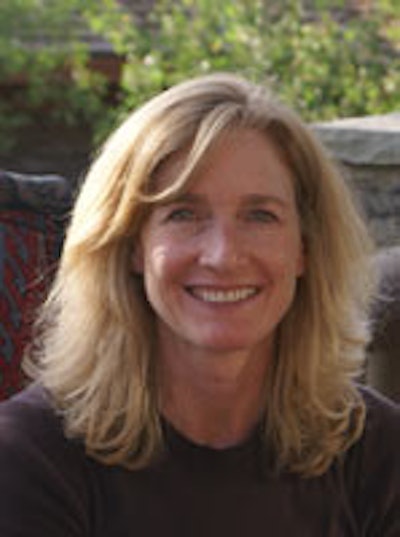
Sarah Pearce is the director of operations for the Sundance Film Festival in Park City, Utah—which opens next Thursday, January 15, and runs through January 25. Affiliated with the organization since 1999, Pearce oversees all operational departments, including ticketing, the filmmaker office, sponsorships, theater operations, security, production, and technical services.
Sundance opens with a gala next week. Why add it this year, and what’s in store?
The reason behind adding a gala is because we are having our 25th anniversary of the festival, and we wanted to create an event that was intimate that celebrated the anniversary, as well as an opportunity for us to raise some extra money in this hard economic time. It’s not formal—nothing is formal at Sundance—but it is intimate and high-end in caliber. We’re going to have a nice dinner, special programming, and performances and appearances by people and filmmakers who have been with us for a long time.
Are you doing anything else to commemorate the anniversary?
We are putting together an exhibit that we call the Sundance House. It's an opportunity for us to showcase some of our archives. We have things like filmmaker acceptance letters from 20 years ago, memorabilia from films that have done promotional [materials], scripts, clips from films from past festivals, and podcasts of past panels. It will be available for the public to see throughout the festival.
How has the economy affected Sundance?
We’re definitely feeling it. We have been through some pretty major budget cuts over the last couple of months; we are seeing a decrease in the amount of sponsor interest. But we have always been really careful about our budgeting process, so we are in O.K. shape to go forward. Obviously, being a nonprofit, we can use all the help we can get, but from outside the event should look as wonderful as it always does.
Are you concerned about the rumors that Proposition 8 opponents might boycott the festival?
Not really—we received some emails when it first happened, and there have been a lot of conversations and press on it. We are really focusing on the films that are in this year’s festival and excited about what we are presenting. We have always championed gay films and subject matter, and will continue to do so, and we hope people will come and support that.
What are some logistical challenges unique to planning Sundance versus other film festivals?
Being located in a small town, we have to rig a lot of our theaters and venues, which makes our budget increase. That's challenging—we’re not walking into theaters that are intact. The weather is challenging. It’s in the middle of winter, but its also really beautiful—it’s a great time for people to come and feel like they are part of a community, be cold together. Lodging can be challenging. We lodge about 800 people between our staff, volunteers, filmmakers, and analysts. Park City is a small town—the lodging is very expensive, and parking is challenging.
One of the biggest things that is challenging for us now, and has been for the last few years, is keeping people focused on the films that we are presenting and the core of our programs versus all of the other marketing and celebrities around the festival that are not officially a part of us. A lot of unofficial companies come into town and piggyback on the infrastructure that we built, yet they don’t support us in any way. So that makes it really challenging for us to get and to keep sponsors because we have to create very high value for them. When [sponsors] see competing companies coming in and getting press exposure, it makes it very challenging for us.
Do you think the proliferation of piggyback events like swag suites takes away from the festival?
Honestly, I think it does. It drives prices up in Park City, and it confuses people as to what the event is about. A lot of people come to Park City and never see a film, and that’s very frustrating to us because that’s what we are about.
What are some ideas you would like to incorporate in future years?
I feel like we’re [already] doing it—that’s why I love working here. I’m really lucky because we come up with crazy ideas, and somehow we are able to pull them off. I am working with Park City to strategically create more permanent venues for us, because it is something that we need to have in order to sustain ourselves into the future, expense wise.



















